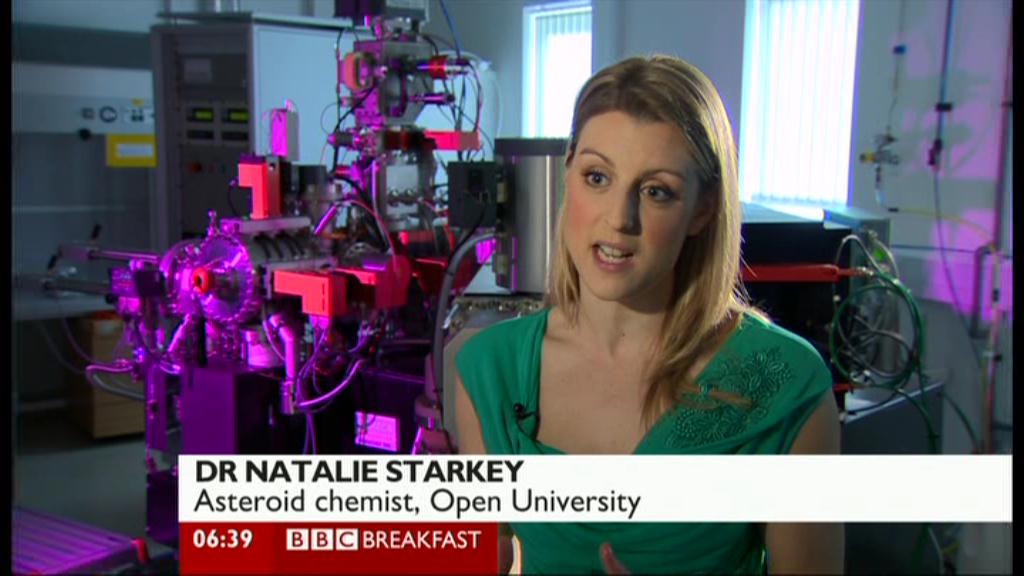
Well it’s been quite a week for space science. As reported in my blog last week we were awaiting on Earth for the very close flyby of asteroid 2012DA14. I was filmed for BBC News here in the UK about this (see below for links). However, on the very same day this flyby was due to occur, another asteroid caused havoc in Russia, and it was totally unrelated to 2012DA14. The Russian meteorite that resulted from this particular asteroid hitting the Earth is now unofficially named the Chebarkul meteorite and so far there are reports that over 50 fragments of the exploded asteroid have been collected, although there may be more to come from the bottom of an ice-covered lake. The asteroid actually exploded into small pieces as it was heated during atmospheric entry, it may have been travelling at speeds of around 20km/s and reports show it created a sonic boom during the explosion that actually caused lots of damage in Russia and a fair few people were injured. Now that pieces of the rock have been collected we will hopefully obtain one or two of these fragments for analysis at the Open University where we can look at it in detail under a microscope and measure its oxygen isotopes to learn more about where and how it formed. In the meantime, reports suggest it’s an ‘ordinary chondrite’ which is a common type of meteorite originating from an asteroid type that we have many samples from on Earth. However, every new meteorite has the potential to tell us something new about the formation of the Solar System and it may turn out that this is a new type of asteroid never sampled before. We’ll learn more over the coming months as scientists study it in more detail.
Piece in The Guardian Newspaper: http://www.guardian.co.uk/science/shortcuts/2013/feb/18/russian-meteorite-fragments-stratospheric-prices
BBC breakfast piece: http://www.bbc.co.uk/news/science-environment-21469066
BBC Newround piece: http://www.bbc.co.uk/newsround/21469653
